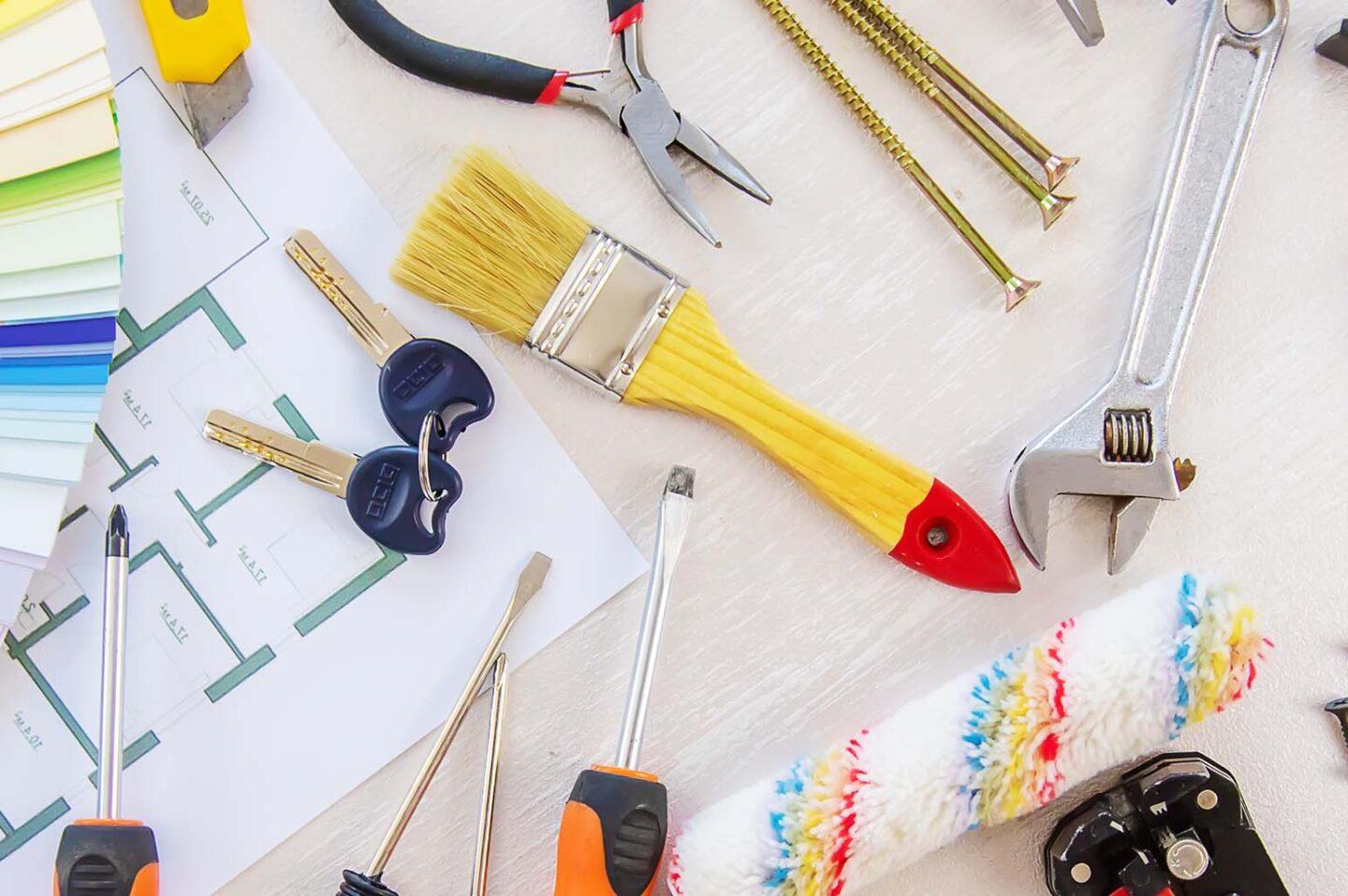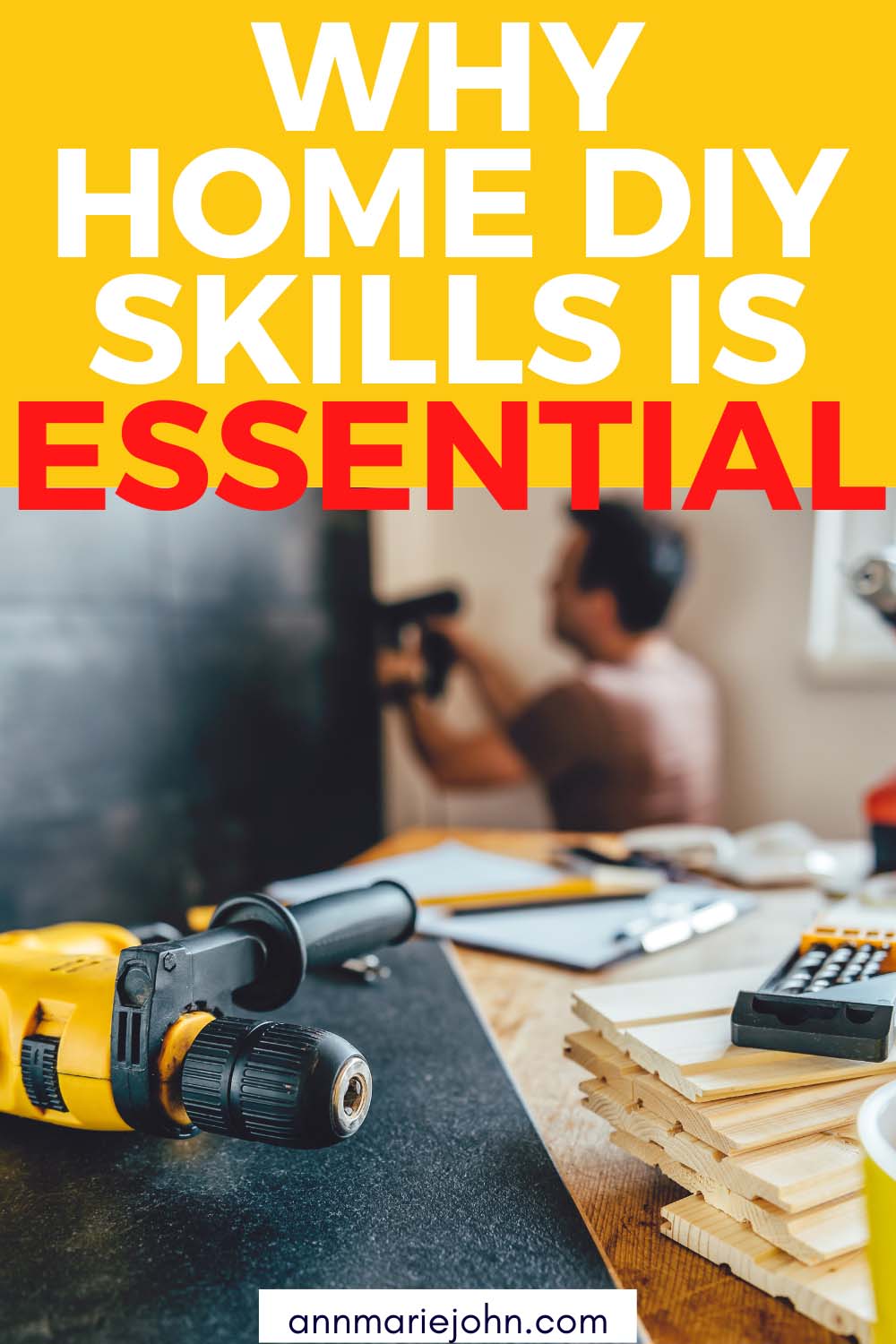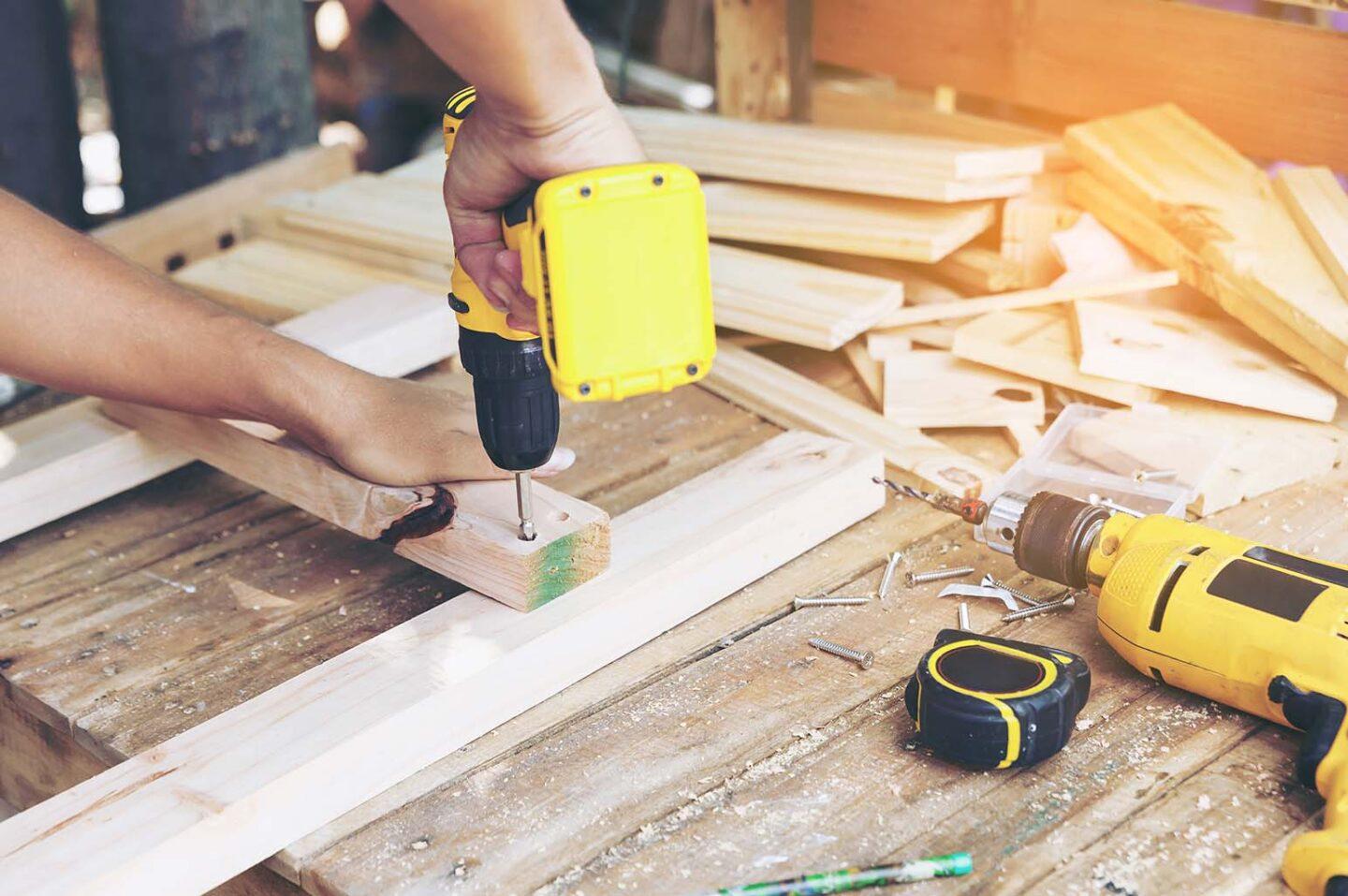Eventually, most people buy and own a home, and that’s a good thing. The problem comes when things start falling apart or going wrong. Most properties last a long time, but they require constant upkeep. If you don’t look after them, they fall apart at the seams.

Unfortunately, 90% of the population doesn’t get an education in household maintenance. That means that when something goes wrong, they need to call out the plumber or the handyman to get stuff fixed. And if you’ve ever hired one of these services, you’ll know how expensive it can be for a call-out.
Learning DIY skills can help extract you from this property-owning quagmire. Once you know what’s going to go wrong, you can acquire the skills that’ll help you fix the problem.
When you think about it, this approach makes sense. Classic cars are far less expensive than houses (usually), but owners know that things will inevitably go wrong. That’s why they learn skills to keep their vehicles in good condition.
The same should be true of people who want to own houses. Properties can be an excellent investment if you know how to take care of them.
The purpose of this post is to explain why being helpless on DIY issues is a bad idea, and why you want to develop handy skills to put things right when they go wrong. Here are some of the reasons to make this transition:

You Can Tackle More Repairs
Throughout any given year, things will go wrong with your property. The fridge door will break, the oven extractor fan will stop working, and your toilet might start squeaking.
Unless your home is brand new and comes with a warranty, you can expect these issues to continue long-term. Many things in your house can break, and they will.
As you might already be aware, hiring professionals to fix these minor problems is costly. Experts will charge large sums for call-outs, even if the job only takes a few minutes.
However, if you can get to grips with fixing some of these problems yourself, you can save a lot of money. For instance, suppose you have a problem with the hood of your oven. It won’t turn on when you press the switch. Instead of getting someone out to take a look at it, you might just replace the fuse instead. If that works, you’ve only spent a couple of dollars instead of over a hundred to get someone to your home.
The same applies if you have a mold problem caused by condensation from your shower. Instead of getting the mold team out to fix a few spots here and there, you can simply use mold-killing spray paint and fix the problem that way. That’s about ten to twenty times cheaper!
You Can Upcycle Old Furniture
Another way DIY in the home can save you financially is by enabling you to upcycle old furniture. You can simply redo older items instead of replacing them outright.
When you think about how much new furniture costs, this approach starts to make a lot of sense. Instead of signing a credit agreement and getting a 48-month loan for a new three-piece suite, you can spend less than 10% of the asking price on some new foam and upholstery. That’s because the structure of most sofas is still intact and will last indefinitely (as long as you prevent kids from jumping on it).
You can also use DIY to upgrade existing furniture when you renovate. Proper skills let you adapt it to new themes, so you don’t always need to change the furniture you own.
You Get A Sense Of Accomplishment
Besides the positive effects on finances, home DIY also gives you a sense of accomplishment. Being able to fix problems when they arise without having to go to someone else helps you feel more in control and reduces the risk of suddenly having to pay massive bills.
Relying on yourself to fix problems can actually be quite a lot of fun. Let’s say you encounter a problem in your home, such as the plastic freezer door cover coming off because of a broken spline. You need this tiny bit of plastic to slot into the groove on the side of the refrigerator, but it is prone to breaking off because of the low temperatures and the amount of stress that it has to endure.
One solution might be to buy a metal pole, drill a hole through the door, and use that as a kind of hinge. However, if you never developed your DIY skills, you would never think of this solution. Sometimes you have to come up with something new to avoid expensive replacements.
You Develop Significant Problem-Solving Skills
Related to this last point, becoming handy with home DIY skills also helps you improve your problem-solving skills. Over time, you get better at fixing problems and solving the issues you face.
If you want to develop problem-solving skills, you need to throw yourself into challenging situations where you can practice. For instance, installing a new kitchen yourself is one of the best ways to start. This requires you to learn numerous skills, including tiling, cabinet fitting, and even basic plumbing. Once you have these core skills, you can start playing around with other areas of the home with more confidence.
You also develop a knack for knowing where problems might develop in the future. You see problems in your existing home and can prevent things from going wrong with timely interventions.

You Can Remove Pests
Another perk is that DIY skills improve your ability to get rid of pests. Say, for example, that a wasp colony moves into your gutter system at the back of your house and finds a hole in your cavity wall where they can enter your bathroom. For most people, this situation is a disaster. But if you understand how wasps operate and can lay insecticide in opportune places, you can deal with the problem yourself.
The same applies when you learn how to get rid of silverfish. You can stop them from scurrying over your floors and infesting your walls.
Getting pest control is essential in some situations. But if you have DIY skills, you can nip most problems in the bud before it becomes necessary. The more problems you tackle, the more likely you are to feel confident taking on bigger challenges and preventing pest infestation issues from cropping up in the first place.
You Can Express Yourself Creatively
Going from helpless to handy in the home is also essential if you want to express yourself creatively. Learning DIY skills gives you more flexibility and prevents you from having to go with pre-fabbed options that look generic.
For many people, DIY in the home becomes an expression of creativity. You might find that you can suddenly get your home to look just how you’ve always wanted without getting in builders or decorators with specialist skills.
You Can DIY Projects Instead Of Buying
Finally, becoming handy in the home with DIY skills means you can take on unusual projects instead of buying. You have more control over what you’re doing.
For example, suppose you want to add an extension to your property. If you understand foundations and building work and follow building standards codes, you can often save enormous sums of money by making changes yourself. You don’t have to invest massively in anything else.
You can also do things like refurbish other homes you own. This way, you have the freedom to increase their value for investment purposes without having to place your trust in builders and designers.
In Conclusion
When it comes to DIY in the home, it’s a bit like Marmite. You either love it or hate it.
Some people really enjoy DIY projects, but others can find them stressful. Therefore, you must find out what type of person you are. You may love taking on something new. Then, again, you might not.
The best advice is to start small and build from there. Learning gradually will help the process feel less overwhelming. You will pick up innumerable skills along the way that you can carry with you for the rest of your life.
Don’t be afraid to go to a mentor and ask for guidance if you are just starting out. There may be people in your area willing to help you learn more about DIY and how to deploy it cost-effectively. Starting with the most beneficial skills financially and adding more after that can be an excellent way to make the enterprise more profitable and valuable to you.
Finally, if you are planning on increasing your DIY skills, focus on safety first. Don’t start climbing ladders to sweep the roof or fiddling around inside the fuse box unless you know what you are doing. The risks simply aren’t worth it for most people. Use the proper safety gear and get the training you need to be effective for more challenging tasks.
